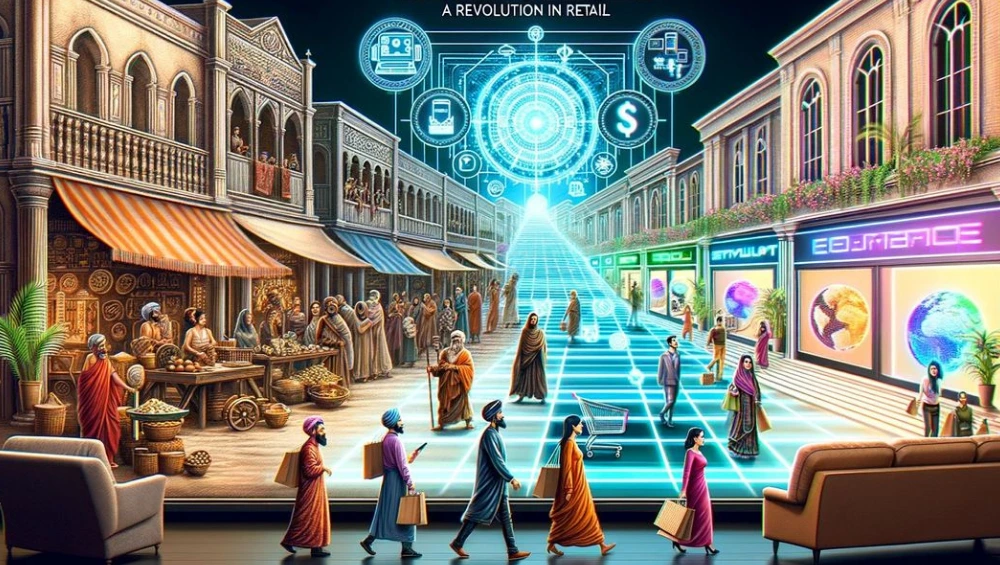The financial markets of 2025 bear the unmistakable marks of a profound shift, often referred to as the retail revolution. Unlike decades past when institutional investors dominated market moves, today individual investors wield unprecedented influence. Fueled by democratized access to information, low-cost trading platforms, and the power of social media communities, these retail investors are rewriting the rules of engagement in stock exchanges and beyond.
The retail revolution is not just a buzzword but a fundamental transformation that is shaping market trends, investment strategies, and the very structure of financial markets worldwide. This article explores how individual investors are driving this revolution, the tools empowering them, the challenges they pose to traditional finance, and what it means for the future of investing.
The Origins and Growth of the Retail Revolution
The roots of the retail revolution can be traced back to the early 2010s when commission-free trading apps such as Robinhood first appeared. These platforms eliminated traditional barriers to entry like high fees and minimum balances, inviting a new wave of smaller, tech-savvy investors to participate.
By 2025, this movement will have blossomed into a powerful force. Reports show that retail investors account for over 30% of all market trades globally, a figure that has steadily risen year over year. The proliferation of mobile apps, fractional shares, and zero-commission trading means that even those with modest capital can take part in sophisticated market plays.
The retail revolution has enabled a generation of investors to bypass traditional gatekeepers such as brokers and financial advisors, fostering a culture of self-education and active participation.
The Role of Technology in the Retail Revolution
Technology is the backbone of the retail revolution. The rise of intuitive trading apps offers seamless user experiences, including real-time market data, instant trade execution, and educational resources tailored for beginners.
Artificial intelligence and machine learning have further empowered retail investors by providing personalized recommendations and risk assessments. Social trading platforms allow users to follow and replicate strategies from experienced traders, while online communities on Reddit, Twitter, and Discord provide a hub for collective intelligence and momentum building.
These technological advances have democratized market access and amplified retail investors’ impact on price movements and trends. The viral trading phenomena of “meme stocks” and cryptocurrencies are prime examples of the retail revolution in action.
Social Media and Community-Driven Market Moves
One of the defining features of the retail revolution is the power of collective action through social media. Platforms like Reddit’s WallStreetBets community famously coordinated surges in stocks like GameStop and AMC, challenging hedge funds and traditional market players.
This grassroots mobilization enables retail investors to pool resources, share insights, and execute large-scale coordinated trades. In 2025, such community-driven dynamics have become a regular feature of market behavior, causing sudden price swings and forcing institutional players to adapt their strategies.
The retail revolution has shown that retail investors are no longer passive market participants but active agents capable of influencing valuations and corporate governance.
Impact on Market Trends and Volatility
The rise of retail investors is reshaping market trends. Unlike institutional investors who often focus on fundamentals and long-term horizons, retail traders tend to be more reactive and momentum-driven.
This shift has contributed to increased market volatility and episodic price bubbles, as seen with meme stocks and the surge of interest in emerging sectors like electric vehicles, green energy, and blockchain technologies.
However, the retail revolution also brings positive effects: it increases liquidity, widens market participation, and promotes greater financial literacy among the masses. Corporations have started to recognize the importance of retail shareholders, engaging them more directly through digital communication and shareholder activism campaigns. You can learn more about this trend on Harvard Business Review’s article on shareholder activism.
Challenges and Criticisms of the Retail Revolution
Despite its empowering aspects, the retail revolution faces challenges. Critics argue that many individual investors lack the experience to navigate complex markets, potentially exposing themselves to significant financial risk.
The surge in speculative trading has raised concerns about market manipulation, misinformation, and the sustainability of hype-driven price movements. Regulators worldwide are scrutinizing trading apps and social media platforms for their roles in these dynamics.
Additionally, the growing influence of retail investors has pressured traditional financial institutions to innovate and rethink business models, which some view as a disruptive but necessary evolution.
The Future of Investing in the Era of the Retail Revolution
Looking ahead, the retail revolution will likely continue to evolve, driven by advances in technology, regulatory frameworks, and investor education. Innovations such as decentralized finance (DeFi), tokenization of assets, and enhanced AI tools promise to further democratize access and reduce complexity in markets.
Financial literacy programs aimed at retail investors are expanding, aiming to empower this growing segment with better risk management skills. Hybrid advisory models blending human expertise with AI-driven insights are gaining popularity, reflecting the hybrid nature of modern investing.
As retail investors gain confidence and influence, the market ecosystem will become more diverse, competitive, and resilient.
Conclusion
The retail revolution represents a seismic shift in the financial world, marking the rise of individual investors as key market influencers in 2025. Empowered by technology, community engagement, and newfound access, retail investors are reshaping market trends and challenging the status quo.
While this transformation brings both opportunities and risks, the overall impact is a more inclusive and dynamic market environment. Understanding and embracing the retail revolution is essential for investors, institutions, and regulators alike, as it defines the future trajectory of global finance.
Whether you are an individual investor eager to participate or a professional adapting to this new paradigm, the retail revolution is a movement you cannot afford to ignore.








